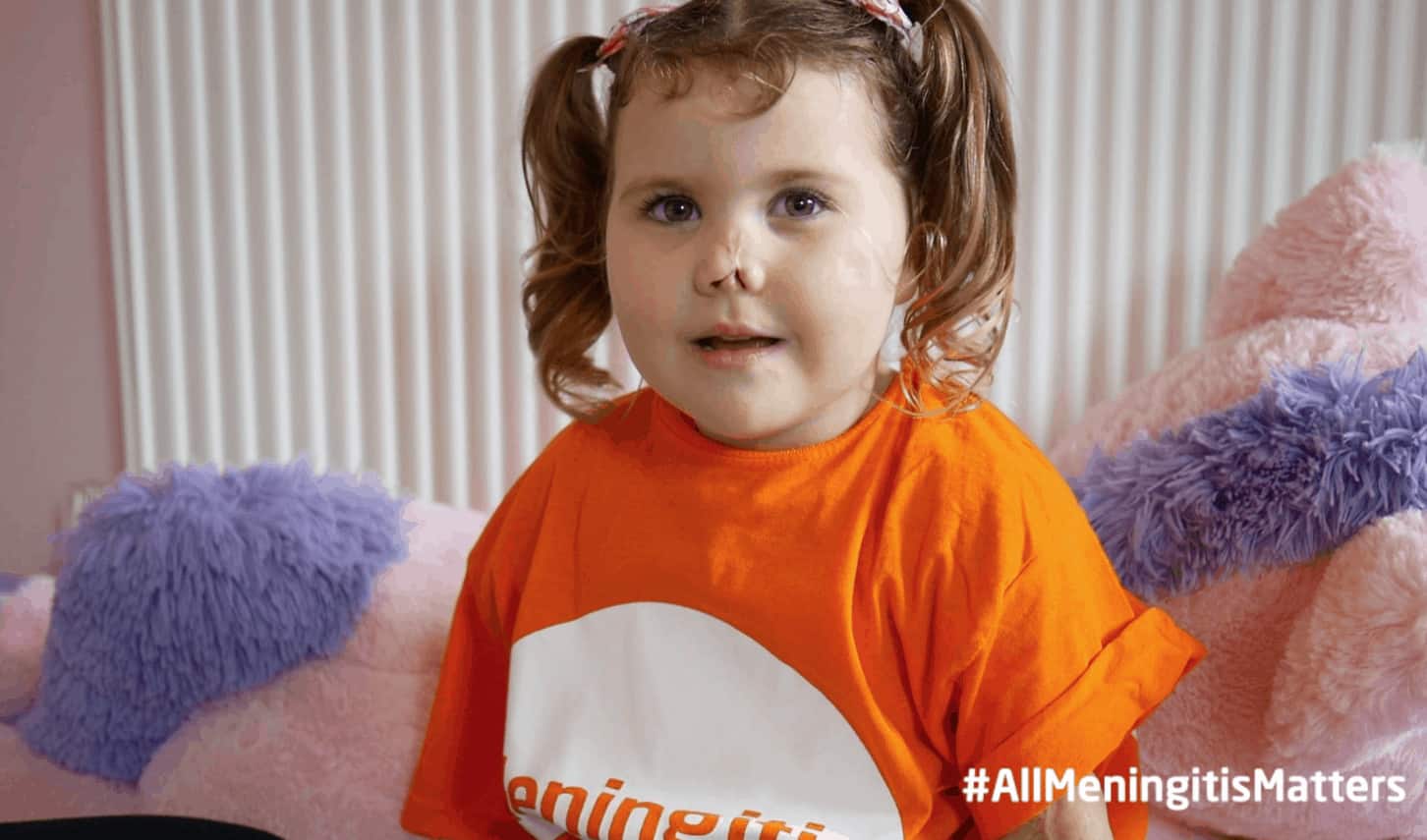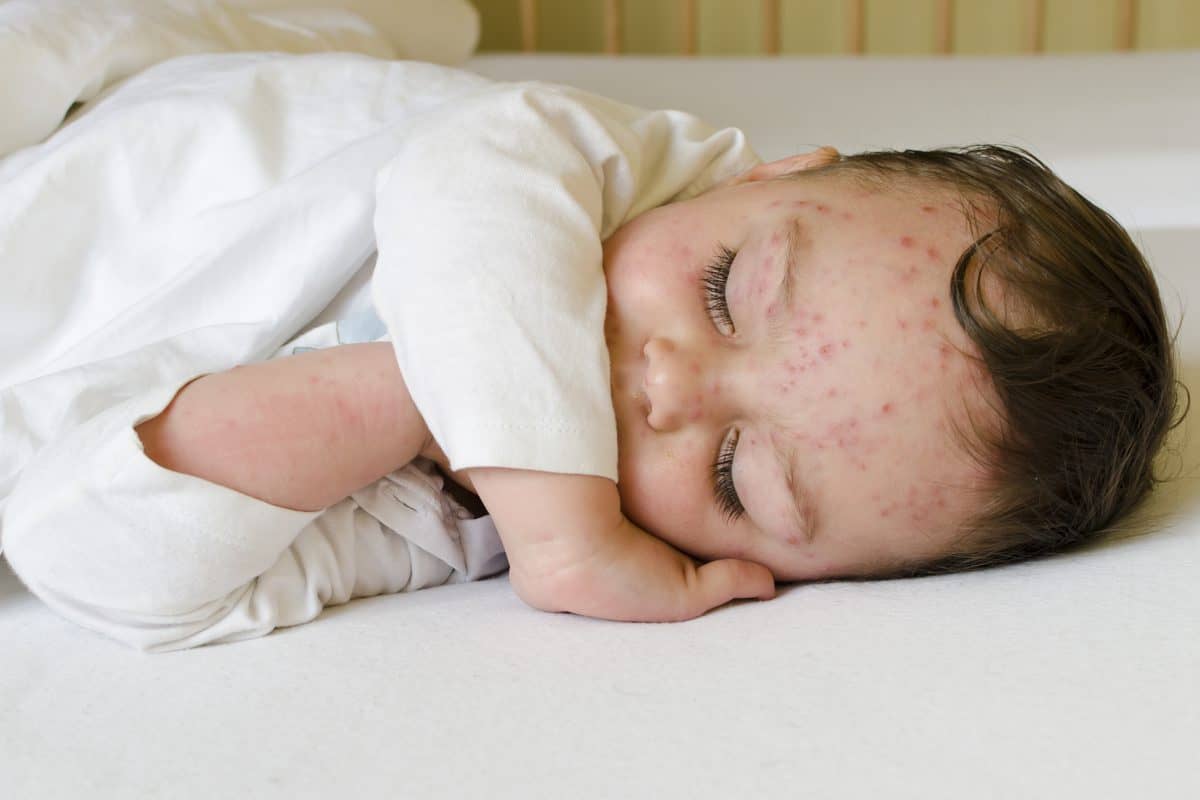Tag: childrens health
The summer holidays will fly by and be over as quickly as they began, much to your relief, but probably the disappointment of your kids! Unfortunately, alongside the general back to school chaos, September also brings with it the start of the flu season.
Flu season not only means that people have to take time off of work due to being ill themselves, but parents often have to take time off work to look after their children who have the flu, because schools are rife with superspreaders. It seems that the best solution to the frustrating effects of the flu on school and parenting life is to nip it in the bud early enough in the season for immunity to make a significant difference.
This is where the flu vaccine comes in.
The flu vaccine comes in two forms, the traditional syringe-administered jab, and a nasal spray vaccine. While the nasal spray vaccine may be the preferred administration tactic for parents of children who don’t like needles, supply issues have resulted in limited availability, and it may still be worth considering the alternative.
When might the jab be preferable?
The nasal spray vaccine is protective and an excellent choice, but is not suitable for everyone. It is a live vaccine, and so cannot be administered to children who are immunocompromised or who live with anyone who may be immunocompromised. It is also unsuitable for anyone with bad asthma, since it may trigger an attack. The injected vaccine is not a live vaccine and is an obvious solution for a lot of people.
The nasal spray vaccine contains traces of gelatine and egg, and so may be unsuitable for vegetarians, vegans, Muslims or those with a severe egg allergy. There is a cell-culture based injectable vaccine that is egg-free, which may be a more acceptable alternative.
The nasal spray vaccine can only be given from age two onwards. However, if there is a special reason for needing to vaccinate your child at a younger age than this, the standard injectable vaccine can be given from the age of 6 months. (The best way to protect babies younger than this is by vaccinating mums during pregnancy.)
For the past three winters, the nasal spray vaccine has been in limited supply. It has not been available privately but only through the NHS, and supply issues have resulted in extended delays. By contrast, injected vaccines have been available reliably from September onwards.
A well-timed dose of the injected vaccine, early in the season, may be a better option than the uncertainty of a delayed dose.
At the Fleet Street Clinic, we have been happy to offer the nasal spray vaccine previously but having been unable to obtain reliable supplies for the past three years, we will not be offering it this season.
If you decide to book the injected flu vaccine for your child this winter, you can rely on guaranteed supplies as well as our expertise in vaccinating babies and children of all ages.
__________________________
24/25 Winter Flu Vaccination Pricing:
Cell-Based Quadrivalent Flu Jab – £42 – Suitable from 2 years
Standard Quadrivalent Flu Jab – £15 (while stocks last) – Suitable from 6 months old
Book Your Flu Jab Online Today
Recent media reports have raised awareness of the effects of Meningitis B and the importance of the meningitis vaccine (if your child is aged under 12 months, the vaccine still readily available via your NHS doctor). Less well-known is the fact that there are different strains of Meningitis, with different vaccines protecting against them.
Strains and Meningitis Vaccines:
- Meningitis B: the protective single-strain meningitis B vaccine is Bexsero
- Meningitis A C W Y: the 4-strain vaccines Menquadfi and Nimenrix offer protection.
Meningococcal Meningitis and its Symptoms
Meningococcal meningitis is a bacterial infection that causes inflammation of the protective membranes surrounding the brain and spinal cord. It can affect people of any age, but those most commonly affected are children under 5, and teenagers and young adults heading off to university.
Initial symptoms may be similar to flu, progressing to:
- A high temperature/fever, with cold hands and feet
- Vomiting
- Refusal to eat
- Drowsiness
- Floppy and unresponsive
- Rapid breathing
- Neck stiffness
- Bright light sensitivity
- Pale, blotchy skin, and a red rash that doesn’t fade when a glass is rolled over it
- Convulsions or seizures
Further information: https://www.meningitisnow.org/meningitis-explained/
The specialists at the Fleet Street Clinic recommend getting your children vaccinated not just against Meningitis B, but against Meningitis A,C,W & Y strains as well (the vaccine is currently available and in stock).
Meningitis B Vaccines Availability
We currently have a good supply of Meningitis B vaccine, available on a first come, first served basis. You can book a Meningitis B vaccination appointment online.
Respiratory Syncytial Virus (RSV) is a common and highly contagious virus that primarily affects the respiratory tract, causing significant illness, particularly in infants.
It is present year-round but peaks during the winter months, and spreads through droplets from coughs and sneezes or via contact with contaminated surfaces. RSV is a virus, so antibiotics are not an effective treatment.
Each year, RSV poses a substantial health risk to infants and older adults worldwide.
In the UK, RSV accounts for approximately 33,500 hospitalisations annually in children aged 5 and under, resulting in 20 to 30 deaths per year. 75-80% of hospitalisations due to RSV happened during the first 6 months of life.
Is there a suitable RSV vaccine for pregnant woman?
Abrysvo is a recombinant vaccine for the prevention of severe lower respiratory tract disease caused by RSV in infants up to six months old. It is the only maternal RSV immunisation given to the pregnant woman between 28 – 36 weeks of pregnancy to help protect newborns. It can also be used for older adults over the age of 60 years, in preventing RSV that can lead to breathing difficulties and pneumonia.
Maternal vaccination involves administering vaccines to pregnant women to protect their newborns through the transfer of antibodies. This approach has been effectively used for diseases like whooping cough.
Vaccinating pregnant women against RSV provides passive immunity to their babies, safeguarding them against RSV until they can receive their own vaccines. The RSV vaccine should ideally be given at least 2 weeks apart from the whooping cough vaccine.
In the UK, the Joint Committee on Vaccination and Immunisation (JCVI) has assessed the impact of RSV and now recommends vaccination to protect vulnerable groups, including infants and older adults with the aim of reducing the incidence of RSV-related illnesses among infants, ultimately reducing RSV-related morbidity.
At Fleet Street Clinic, we can offer private RSV vaccination to protect you and your baby, ahead of the NHS roll out.
Abrysvo is an inactivated vaccine and only requires a single dose for protection.
Price: £296
Please contact our reception team to book by phone, +44 20 7353 5678 or by emailing info@fleetstreetclinic.com
RELATED SERVICES AVAILABLE AT FLEET ST. CLINIC
Travelling with children can be an enlightening and wonderful experience for the family – creating memories and opening their minds to other cultures and ways of life. But on the flip side it also can be quite daunting, especially if this is your first time travelling with children. The best way to establish a safe travel experience abroad is to take early precautions.
Before Your Travels
When it comes to travelling with children, careful planning and preparation should be considered. It is highly advised to have a travel consultation well in advance of your travels. The travel nurse will make you aware of any travel risks and take into consideration your child’s current wellbeing. Depending on where you are travelling, your child may require certain vaccinations.
These preventative measures will safeguard your child from any diseases or illness.
Your may be advised the following vaccinations:
- Rabies
- Yellow Fever
– Some countries require this as a condition of entry and will ask for proof of vaccination when you arrive into the country. - Hepatitis A
- Typhoid
- Tick-borne Encephalitis
- Japanese Encephalitis
- Hepatitis B
- Meningitis ACWY
- Cholera
All vaccinations require a duration of time following vaccination to reach full protection, usually 10 – 14 days, so factor this time in before your travels. In addition, some vaccinations require a multi-course dose before they are considered effective, such as rabies which requires 3 vaccinations to be considered a complete course. Book a travel consultation early to ensure you have enough time before you travel.
In addition to travel vaccinations it is worth discussing any upcoming childhood vaccinations that could be beneficial to have at the same time so your child is protected against any other common diseases that aren’t necessarily associated with just travel.
If you intend to go to countries with a high malaria risk it is important to discuss antimalarial protection during your travel consultation. Malaria can be fatal and there is a higher risk for children. Antimalarials (malaria tablets) are generally taken for a duration before, during and after your trip and need to be purchased in advance of your travels. There are a number of different types and are suitable for different people so it is important to discuss your options with a travel health expert. The tablets work by ensuring the malaria parasite doesn’t reach unmanageable numbers, keeping you healthy whilst you travel.
Travelling abroad can be exhausting, especially for young children. Jet Lag is known to cause temporary sleep disturbance, which can have an impact on your mental health and other bodily functions. To prepare ahead, The Jet Lag Calculator can tell you how long it will take the body to adjust to your new time zone when you travel – and to adjust back again when you come home.
To undergo a Pre-Travel Consultation, book online or for more information on Travel Health Services.
During Your Travels
Travelling can sometimes result in unexpected situations. For the protection of your child/ren and your family in general, always carry a First Aid Kit. This will reduce your need to seek medical aid for minor accidents or journeys to a chemist, especially if local towns are at a further distance.
When travelling to warmer climates, sun safety is crucial as young children are more vulnerable to sunburn from outdoor activities. To protect the skin apply sunscreen of at least SPF 30, with broad spectrum UVA and UVB protection throughout the day. In addition, hot weather can also pose a risk of dehydration and heat stroke. Ensure you and your child are hydrated throughout the day by drinking water from a safe source. This can be bottled water, boiled water, or water that has been filtered.
To further avoid traveller’s diarrhoea:
- Wash your hands regularly, especially before eating
- Carry an alcohol-based sanitiser
- Keep children from crawling or sitting on the ground
- Avoid swimming in contaminated water
- Don’t swallow any shower or pool water
- Eat raw fruits and vegetables only if washed in clean water or peeled
- Stick to foods that are well cooked and served hot
- Stick to canned or bottled beverages
- Avoid food that has been sitting on a buffet to avoid contamination
We have launched a new, free online consultation for Travellers’ Diarrhoea – by answering a few simple medical questions about yourself, we can check if antibiotics are recommended for your trip. You can pay online and we’ll dispatch them directly to you if you are suitable.
Alternatively, you can have a more comprehensive travel consultation in-clinic with one of our experienced travel nurses.
For more information on the prevention and treatment of Travellers’ Diarrhoea.
The feeling of discomfort from bug bites can truly be a nightmare whilst travelling. Insect bites such as mosquitoes, ticks, biting fleas and kissing bugs can cause pain, irritation and even spread diseases. However, they can be avoided through protective clothing. Our Ultimate Bug Kit has everything you need from repellents to aftercare. Alternatively, you could purchase individual items and create your own kit.
After Your Travels
Travelling can expose your child to certain diseases. If your child falls unexpectedly ill – contact your doctor or emergency services right away. A high temperature/ fever could mean an infection. For most people, travellers’ diarrhoea usually clears up within a few days. However, if your stomach bug has been ongoing for weeks after returning home, then you will need to do testing to investigate the root cause. Viruses, bacteria or parasites all cause similar symptoms but require an entirely different treatment approach. Our Gastrointestinal (GI) Panel PCR test looks for any microbes that are causing your symptoms and can quickly identify the exact cause of your Travellers’ Diarrhoea. Results can be provided in as little as 1-hour, so that accurate and effective treatment can begin straight away.
What to do if you think your child has measles and when to keep them off school.
Measles cases are increasing throughout England, particularly among children. This highly contagious infection can lead to severe complications for some individuals.
Since there is no specific medical treatment for measles, obtaining vaccination is crucial for the best defence against serious illness. The measles, mumps, and rubella (MMR) vaccine is part of routine childhood vaccinations, meaning most children are already immunised against measles.
If your child has received both doses of the vaccine, it is unlikely that they will contract the virus.
Here, we’ll provide everything you need to know about measles, from ensuring your child’s vaccination to knowing when to keep them away from school.
What are the symptoms of measles?
Measles usually starts with cold-like symptoms, followed by a rash a few days later. Some people may also get small spots in their mouth.
Symptoms of measles usually start to appear 7-14 days after you become infected, which include:
- Runny/blocked nose
- Sneezing
- High temperature
- Sore, red eyes that may be sensitive to light
- Sore throat
- White spots inside the mouth
What does a measles rash look like?
Measles usually begins as flat red spots that appear on the face at the hairline and spread downward to the neck, body, arms, legs, and feet. Small, raised bumps may also appear on top of the flat red spots. The spots may become joined together as they spread from the head to the rest of the body.
What should you do if you think your child has measles?
If you suspect that you or your child might have measles, it’s important to request an immediate GP appointment or seek assistance from NHS 111.
Before visiting the GP or any healthcare facility, make sure to call ahead for guidance.
In the event of a measles diagnosis for your child by a doctor, it is advisable for them to refrain from attending nursery or school for a minimum of 4 days from the onset of the rash. Additionally, they should steer clear of close interactions with infants and individuals who are pregnant or have compromised immune systems.
What is the best way to protect against measles?
The best protection against measles for children and adults is to get both doses of the MMR vaccine.
MMR vaccination is available at Fleet Street Clinic for children and adults who would like catch-up on doses. If you or your child haven’t been vaccinated yet, or have an unfinished course of vaccines, either book an appointment online or contact our reception team on +44 20 7353 5678 to book an appointment.
We can usually accommodate same day appointments.
Alternatively, children receive the vaccine at no cost on the NHS at 12 months and then a second dose at 3 years and 4 months. You may find the NHS vaccination service has a longer wait time that us.
If you prefer a version of the MMR vaccine without pork products, please get in touch, explaining your preference and we will do our best to accommodate. It’s important to note that we would be ordering this product specially for you, so there may be a longer wait time for delivery and prepayment will be required. Either call our reception team on +44 20 7353 5678 or email info@fleetstreetclinic.com
Cold-like symptoms can be an early sign of measles. Should you still send your child to school?
If your child has been vaccinated, it’s very unlikely that they have measles. Check if they have a high temperature or a fever, and if not, we’d advise it’s fine to send your child to school.
Keep an eye on their symptoms and adapt accordingly if they worsen.
When should you keep your child off school or nursery and how long for?
If your child has measles, they should stay off nursery or school for at least 4 days from when the rash first appears and avoid close contact with babies and anyone who is pregnant or has a weakened immune system.
The school will let you know if your child has been in contact with someone who has measles and advise what you need to do.
They may advise people who are more susceptible to contracting the virus, such as unvaccinated siblings to stay away from school for the incubation period to be on the safe side.
The incubation period is the length of time it can take to develop the illness after being in contact with someone with measles. For measles, the incubation period can be up to 21 days.
Anyone, child or adult, who has been vaccinated is unlikely to be considered susceptible.
If you’re not sure whether your child is due a vaccination or has missed a vaccination, you can check their Red Book or contact your registered GP practice for confirmation.
If your child has missed their first or second dose of the MMR vaccine, we’d advise you book an appointment for catch up vaccines. You can book an appointment online.
Should you keep your child off school if another pupil has been diagnosed with measles?
Most children will be protected against measles and there is no need to keep your child off school if they have had both their MMR vaccinations.
Your school will let you know if your child has been in contact with someone with confirmed measles and will advise what the next steps are.
Can I still get my child vaccinated even if they’re older?
Yes. The MMR vaccine is suitable for adults and children, therefore, anyone who has not had 2 doses of the MMR vaccine can book an appointment for catch up vaccinations.
It’s best to have vaccines on time, but you can still catch up on most vaccines if you miss them. Two doses of the vaccine are needed to ensure full protection.
RELATED SERVICES AVAILABLE AT FLEET ST. CLINIC
Related Blogs:
Measles outbreak & isolation warning
In September 2021, Public Health England released new rules surrounding the timing of BCG vaccination, increasing the minimum age of vaccination to 28 days. This has been implemented in line with a pilot disease screening programme that tests eligible newborns for Severe Combined Immunodeficiency (SCID), the outcome of which becomes available by the time the baby is 6 weeks old. It is important that we wait for the result of this test before giving the BCG vaccine.
What is SCID screening?
All newborn babies in the UK are currently offered blood spot screening (heel prick test) that looks for 9 rare diseases, including sickle cell and cystic fibrosis. The NHS is considering introducing an additional test for Severe Immunodeficiency (SCID), a name given to a group of rare, inherited disorders that cause major abnormalities in the immune system. Affected infants have an increased risk of life-threatening infections and will normally become severely unwell in the first few months of life. Without treatment they will rarely live past their first birthday. About 14 babies a year are born in England with SCID.
The evaluation of this testing, which began on 6th September 2021, is taking place in 6 areas across England and will cover around 60% of new born babies. It is running alongside the existing blood spot screening and the intention is to roll it out nationally once the 2 year evaluation has been made.
Why does this affect the BCG vaccination?
Bacillus Calmette-Guérin (BCG) is a live attenuated vaccine that can cause problems if given to an immunocompromised person. Treatment for SCID is more complicated if the child has received the BCG vaccine, so it is important that if your child has been tested. We wait for a negative result before vaccinating.
What we need from you:
If your child was included in the SCID programme, you will need to provide a letter that confirms the negative result of screening.
If your child was born outside of the programme areas and therefore, not included in the SCID programme, we will need to see a letter confirming this.
In either case, please bring the letter with you to your appointment, as well as your child’s vaccination book.
Nb. If your child was born before 1st September 2021, before the programme was introduced, no letter will be needed.
For more information on:
Other Childhood Vaccinations
Cases of Strep A infections amongst children are on the rise and tragically at least 9 children are known to have died in the UK as a result.
What is Strep A?
Group A streptococcus (GAS) is a common bacteria. Lots of us carry it in our throats and on our skin and it doesn’t always result in illness. However, GAS does cause a number of infections, some mild and some more serious.
Strep A causes infections in the skin, soft tissue and respiratory tract. It’s responsible for infections such as tonsillitis, pharyngitis, scarlet fever, impetigo and cellulitis among others.
Strep A Infections are not common but it is important for parents to lookout for symptoms and consult a GP as soon as possible for early diagnosis and treatment. Strep A infections are treatable if caught early.
Symptoms of Strep A
The first symptoms to appear are fever, chills, muscle aches and sore throat with difficulty swallowing.
Later, a rash may develop and the tongue may become red and inflamed. There may be pus on the tonsils which can be seen as white exudates. The disease affects the neck as well as it becomes tender due to the enlargement of the lymph nodes.
Small children may also present with headaches and abdominal pain in addition to the above symptoms, plus even nausea and vomiting.
How does the disease spread?
School children are in the close contact with each other and hence, they are more likely to spread the disease. In the past, GPs have been advised not to prescribe antibiotics if avoidable.
Strep A needs treatment with Penicillin or an alternative antibiotic in the case of penicillin allergy.
Children with strep A must stay at home until recovered to avoid spreading the bacteria.
How can you protect your child
It is very important for carers to stay vigilant and lookout for any symptoms that their child might have. If there is any suspicion of Strep A, make sure that the child is treated with antibiotics or an alternative just to be safe.
To limit the risk of infection, parents must not send children to school with tonsillitis, so that the spread of the disease can be reduced.
If your child develops symptoms:
- consult your GP for proper medical advice
- do not leave it until your child is seriously unwell to get treatment
Call 999 or go to A&E for emergency help if your child:
- develops difficulty breathing
- pauses between breaths
- will not wake or stay awake
- their skin, tongue or lips change colour to blue
The number of cases can be reduced if proper care is taken for Strep A and its symptoms.
_____________________________
We are a family friendly health clinic – if your child needs to see a GP – book online.
________
Dr Belinda Griffith’s comments in the UK news:
Independent Online: How can I protect my child from Strep A?
Yahoo! News: Health: How can I protect my child from Strep A?
The Herald Scotland: How can I protect my child from Strep A?
Urgent polio boosters advised for London children
UK Health Security Agency (UKHSA) has announced that all children aged 1-9 years regardless of previous immunisation status are recommended a polio vaccine booster from all London boroughs.
The virus, which can cause paralysis, has been found 116 times in London’s waste water between February and July this year.
In the UK, the overall risk of paralytic polio is considered low because most people are protected from this by vaccination. However, due to the recent discovery of type 2 vaccine-derived poliovirus in sewage in multiple locations in London, the Joint Committee on Vaccination and Immunisation (JCVI) have advised that booster vaccinations in all children aged 1-9 years is an appropriate course of action.
The UKHSA says most of the samples detected are the safe vaccine form of polio, but “a few” have mutated enough to be considered dangerous.
Parents should seek the polio vaccine booster as soon as possible – even if their child is up-to-date with their childhood vaccinations.
The aim is two-fold; to ensure a high level of protection from polio paralysis and help reduce further spread of the polio virus across London and beyond.
Booster Polio Vaccinations at Fleet Street Clinic
We offer two vaccinations in-clinic that offer protection from Polio:
Revaxis Vaccine: Suitable for children from 6 years and above
Protects against: Diphtheria, Tetanus, Polio
Cost: £49 + £28 appointment fee
Call to book
Repevax Vaccine: Suitable for children from 3 years and above
Protects against: Diphtheria, Tetanus, Polio & Whooping Cough
Cost: £98 + £28 appointment fee
Call to book
Both of these vaccinations are inactivated, and given by injection. They are both licensed as booster doses, and are not intended for primary immunisation.
More information on the Polio vaccines available at Fleet Street Clinic, click here.
Primary Polio Vaccination
Unfortunately, we do not offer the infant/ baby vaccination for Polio – in the UK this would be the Infanrix-Hexa, the 6-in-1 vaccine. We have no suitable vaccination for children under the age of 3, or for those requiring their primary immunisation against Polio.
Please contact your NHS doctor or an alternative provider to see if they can help you further.
Dr Vanessa Saliba, Consultant Epidemiologist at UKHSA, said:
“It is vital parents ensure their children are fully vaccinated for their age. Following JCVI advice all children aged 1 to 9 years in London need to have a dose of polio vaccine now – whether it’s an extra booster dose or just to catch up with their routine vaccinations. It will ensure a high level of protection from paralysis. This may also help stop the virus spreading further.”
______________________
More information on Polio and the emerging London findings:
What is Polio?
Polio is a serious viral infection that is transmitted through the stool’s of an infected person through contaminated water, food or surfaces. It can cause unpleasant flu-like symptoms and in severe cases, cause paralysis.
What are the symptoms of Polio?
The majority of people with the infection have no symptoms but some feel as if they have the flu, with:
- high temperature
- sore throat
- headache
- abdominal pain
- sickness
In severe cases of polio, the virus can attack the nerves in the spine and brain which can cause paralysis. In some cases, it can cause persistent or lifelong difficulties and even be life-threatening.
Where has Polio been found?
According to the UKHSA statement, in addition to the findings earlier this year of type 2 poliovirus (PV2) collected from the Beckton sewage treatment works, further upstream sampling undertaken by the UK Health Security Agency (UKHSA) and the Medicines and Healthcare products Regulatory Agency (MHRA) has now identified at least one positive sample of the poliovirus, currently present in parts of the following boroughs:
- Barnet
- Brent
- Camden
- Enfield
- Hackney
- Haringey
- Islington
- Waltham Forest
The sampling has also detected the virus in lower concentrations and frequency in areas adjacent to the Beckton catchment area to the South (immediately below the Thames) and to the east of Beckton. However, it is not clear whether the virus has established itself in these areas or if the detections are due to people from the affected area visiting these neighbouring areas.
How many cases of Polio have been identified?
To date, again based on the UKHSA statement, ‘a total of 116 PV2 isolates have been identified in 19 sewage samples collected in London between 8 February and 5 July this year’.
A further 15 sites in London will start sewage sampling in mid-August, and 10 to 15 sites will be stood up nationally to determine if poliovirus is spreading outside of London.
To book your child’s Polio Booster Vaccination, call +44 20 7353 5678 today.
Parents are being urged to get their children vaccinated for measles, mumps and rubella following outbreaks of measles across Europe:
Anyone who is eligible to get vaccinated should get the MMR vaccine.
A measles outbreak across Europe has left UK officials urging parents to get their children vaccinated for measles, mumps and rubella. As measles is highly infectious, anyone who has not received 2 doses of the MMR vaccine is at risk. Particularly those unvaccinated people travelling to countries where there are currently large outbreaks of measles.
In the first three months of this year, there have been 231 confirmed cases of measles and 795 of mumps. While Public Health England (PHE) figures showed while measles cases were lower than the 265 reported during the same period last year, they had more than doubled compared to the 97 reported between October and December. The number of mumps cases has nearly tripled compared to the 275 cases during the first three months of 2018. No new cases of rubella have been reported.
PHE has now appealed to parents to make sure their children receive the MMR vaccine when it’s offered, or to get a GP appointment booked if they missed it. Officials have also warned that not only is measles highly contagious, but it can also kill a child if they are not vaccinated. Anyone who has not received two doses of MMR vaccine is at risk of measles as it is highly contagious.
There have been 3,789 cases of measles in Europe during the first three months of this year, according to the European Centre for Disease Prevention and Control. The highest numbers were in Romania, France, Poland and Lithuania.
Advice for travellers
For all those planning to travel to Europe, make sure you are up-to-date with all currently recommended UK vaccines. This includes two doses of the MMR vaccine for protection against measles, mumps and rubella.
Anyone who is not sure if they are protected should check with their GP practice. Vaccination is usually done within your childhood vaccinations. However, the MMR vaccine is available to all adults and children who have not had their two-dose course. In some cases, the MMR vaccine can be offered to babies from six months of age. Cases such as travelling to countries where measles is common, or during an outbreak situation. Book a travel consultation with our travel nurse for advice on the best option for your children before you travel.
Head of immunisation at PHE, Dr Mary Ramsay, warned with measles outbreaks across parts of Europe, families should make sure they are vaccinated before travelling. ‘There are measles outbreaks happening across Europe so if you are planning to travel, make sure you check with your GP and catch-up if needed.’
Herd immunity
Measles elimination can only be sustained by maintaining and improving coverage of MMR vaccine in children, and by using all opportunities to catch up older children and adults who missed getting the MMR vaccine.
To achieve herd immunity for measles at least 90 to 95 per cent of the population needs to be fully protected. PHE said 94.9 per cent of eligible children aged five received their first dose of MMR in quarter 4 of 2018. However, the second dose of protection falls to 87.4 per cent for children aged five.
Fleet Street Clinic’s medical director, Dr Richard Dawood explains, ‘When the rate of vaccination in the general population falls below 95%, outbreaks occur and can easily spread, with the highest impact on those most vulnerable populations, undermining years of hard work around the world to bring measles under control.’
Vaccination against Measles, Mumps & Rubella
One dose of the MMR vaccine is about 90 to 95 per cent effective at preventing measles. Protection rises to around 99 per cent after the second dose. Two doses of MMR in a lifetime are needed for a person to be considered fully protected.
The MMR vaccine schedule:
- Two doses, to be given at least 4 weeks apart.
- If the first dose is given before 12 months of age (due to the need for early protection), this should be discounted and the child should continue to receive 2 doses as per the normal schedule.
- The vaccine is also available to all adults and children who are not up-to-date with their 2 doses.
Anyone who is not sure if they are fully vaccinated should check with their GP.
You can book all vaccination appointments online.










